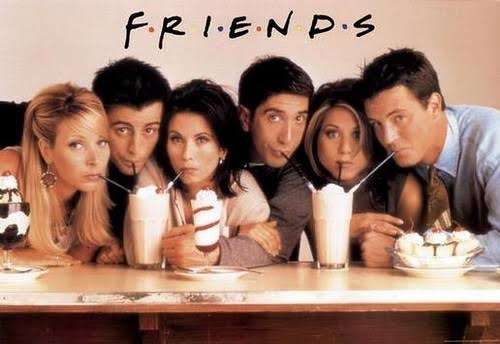MOVIEZ
Featured Post
The jokes that have made people laugh for thousands of years
The jokes that have made people laugh for thousands of years
A favorite:
A provincial man has come to Rome, and walking on the streets was drawing everyone's attention, as he was a real double of the emperor Augustus. The emperor, having brought him to the palace, looks at him and then asks: "Tell me, young man, did your mother come to Rome anytime?" The reply was: "She never did. But my father frequently was here."😂😂😂😂😂😂😂😂😂😂😂😂😂😂😂😂😂😂😂😂😂😂
- Why was the math book sad? Because it had too many problems.
- What do you call an alligator in a vest? An investigator.
- Why don't scientists trust atoms? Because they make up everything.
- Why did the tomato turn red? Because it saw the salad dressing!
- Why don't oysters give to charity? Because they're shellfish!
Holy cow!
A pair of cows were talking in the field. One says, “Have you heard about the mad cow disease that’s going around?”
“Yeah,” the other cow says. “Makes me glad I’m a penguin.”
😂😂😂😂😂
Where there’s smoke
“Once, my father came home and found me in front of a roaring fire. That made my father very mad, as we didn’t have a fireplace.” —Victor Borge
😂😂😂😂😂
Identity crisis
“Your mother has been with us for 20 years,” said John. “Isn’t it time she got a place of her own?”
“My mother?” replied Helen. “I thought she was your mother.”
—Joseph Lozanoff
😂😂😂😂😂
A taxing situation
According to unofficial sources, a new simplified income-tax form contains only four lines:
1. What was your income for the year?
2. What were your expenses?
3. How much have you left?
4. Send it in.
—The Link
😂😂😂😂😂
The jokes that have made people laugh for thousands of years
The phrase "the old ones are the best ones" might not always be true. But some of the oldest jokes in history are still in use today. What makes a good joke? It’s worth going back a few thousand years to find out.
A
After months spent poring over medieval texts for her PhD, Martha Bayless made a surprising discovery. She was looking at some of the earliest jokes written in Latin by Catholic scholars (some in excess of 1,000 years old). Few had ever been translated into English before, yet many were still funny – and some even made her laugh out loud.
Shortly after, while waiting for her train, Bayless was reading a copy of Truly Tasteless Jokes 3 – a popular joke anthology from 1983. She was surprised to find, almost word for word, a joke that she had been transcribing just a day earlier.
The joke lives up to the "truly tasteless" promise of the book. This is how it starts in its 1,000-year-old format: Two men were walking along a road talking of this and that. "What do you think," says one. "Which is more fun, defecating or having sex?"
The other man ponders the question before coming up with a solution. I'll spare you the details, as it is a little rude by today's standards, but it involved seeking the advice of a sex worker.
It struck Bayless that the joke had continued to be shared through a spoken culture of joke-telling, starting with the Latin text and culminating with her modern joke book, without needing to be written down for centuries in between.
There is clearly something in this joke that has kept it in use to this day, even if it is crass by today's standards. But what is it that is still tickling audiences through the centuries? And will some modern jokes still be funny for thousands of years to come? As a comedy writer for BBC Radio 4, I was interested to find out.
It seems that there are recognisable features in even the earliest written jokes. National Public Radio (NPR) in the US suggested in 2016 that the oldest recorded joke is from Bronze Age Sumeria (an early Mesopotamian civilisation dating 3300-1200BC). The joke goes: "What has never happened since time immemorial? A young wife has not farted on her husband's lap."
The earliest jokes we have on record suggest that crude jokes stand the test of time (Credit: Javier Hirschfeld/ Getty Images)
Some researchers suggest that because humour brings us together it might have an evolutionary purpose. Perhaps our ability to make light of bad situations helped us to overcome them – by joining together in laughter, we were able to reinforce our social bonds. Some scholars point to the existence of teasing-like behaviours in primates like chimpanzees as evidence of an early evolutionary origin of humour in humans. However, captive animals could be copying behaviours they have seen in us.
But not all rude jokes translate well across cultures. Peter McGraw, a professor of marketing and psychology at the University of Colorado Boulder, explains that cultural norms vary so widely, finding a universally funny joke is challenging. "Even something like belching has a cultural element," he says. "In some cultures, to belch at the table is highly offensive. If your child does it, you might laugh because they don't know any better. In other cultures, it might mean 'Thank you, that was a wonderful meal'."




